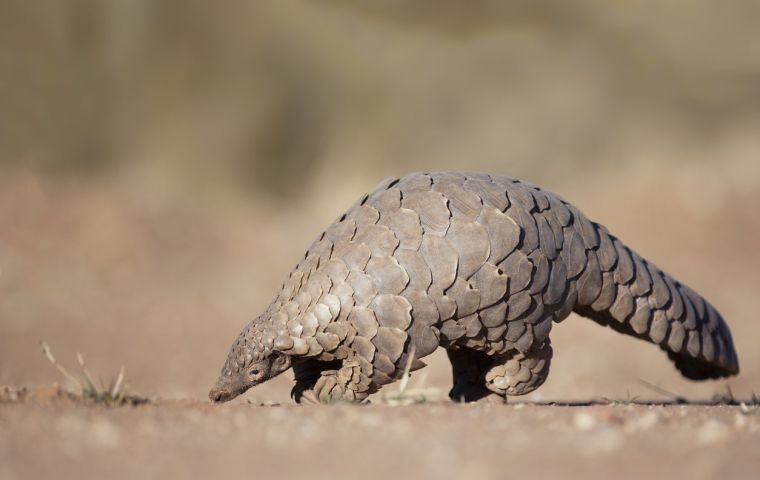MercoPress. South Atlantic News Agency
China increases protection of the pangolin to the same level as royal pandas
 Chinese state media reported that pangolins were left out of the official Chinese Pharmacopoeia this year
Chinese state media reported that pangolins were left out of the official Chinese Pharmacopoeia this year Wildlife activists on Wednesday welcomed China's decision to remove pangolin parts from its official list of traditional medicines, as Beijing steps up protection of the heavily-trafficked endangered mammal.
Chinese state media reported that pangolins were left out of the official Chinese Pharmacopoeia this year, days after the government increased legal protections for the animals to the same level enjoyed by giant pandas.
While international trade in the pangolin is illegal, the animal's body parts have frequently been sold at high prices on the black market as they are commonly used in traditional Chinese medicine, though scientists say they have no therapeutic value.
The move “may not stop the black market, but it gives a legal foundation that should slow trade and discourage legal consumers,” Maria Diekmann, founder of the Namibia-based Rare and Endangered Species Trust said.
Diekmann said that while conservationists had been pushing for China to remove the pangolin's medicinal status for years, the COVID-19 pandemic was likely the factor behind “99 per cent of the decision”.
The animal, which lives in Africa and Asia, is thought by some scientists to be the possible host of the novel coronavirus that emerged at a market in China's Wuhan city last year.
“Depleted wild resources” are being withdrawn from the Pharmacopoeia, the state-owned Health Times reported Tuesday, although the exact reason for the removal of pangolins was not given.
Richard Thomas from animal rights NGO Traffic said it was still unclear if the pangolin's removal from the main text of the Pharmacopoeia would mean no formulations containing the animal's parts would remain in the annex of the text.
But “if the removal is confirmed, it could lead to a reduction in demand for pangolin scales,” Thomas pointed out.
“Ultimately it is demand that fuels trade and if there is a real, sustained drop in demand, this can only be beneficial for pangolins.”
China has in recent months banned the sale of wild animals for food, citing the risk of diseases spreading to humans, but the trade remains legal for other purposes - including research and traditional medicine.




Top Comments
Disclaimer & comment rulesCommenting for this story is now closed.
If you have a Facebook account, become a fan and comment on our Facebook Page!